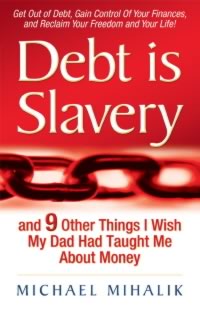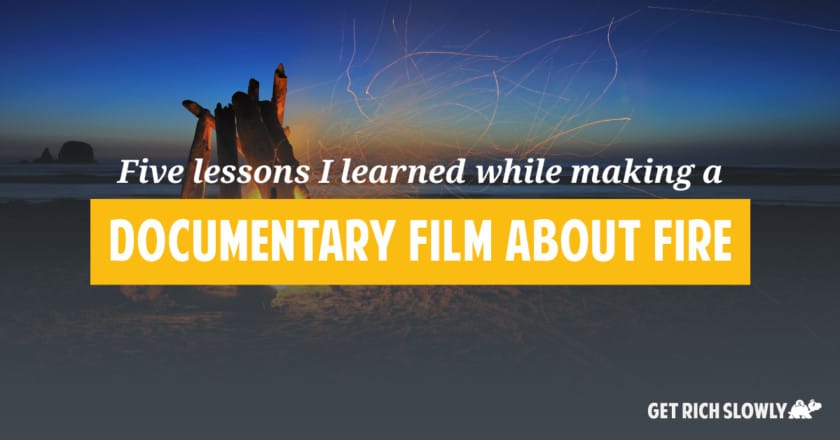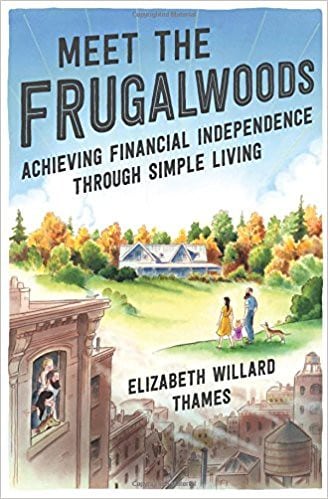An index to every money book I’ve reviewed during the past twelve years
I read a lot of money books. As a result, a large section of my large library is devoted to books about personal finance. (And if I hadn't purged hundreds of money books when I sold this site in 2009, I'd have even more books -- and no place to put them.)
Last week, a GRS reader named Lindsay dropped a line with an interesting question:
"I'm really enjoying your work back at GRS, the email newsletter, and your most recent FB live video! I'm wondering: Do you have a list of all the money books you've reviewed? I've been poking around to try and find one)?"
Discipline equals freedom: The difference between deprivation and depriving yourself
Financial independence and early retirement continue to attract mainstream attention. This is a good thing. Check that, this is a great thing. Of course, with this attention there are more naysayers and critics than ever.
One of the main criticisms of the FIRE movement -- and of frugality, in general -- is that those who seek FIRE are depriving themselves. Or leading lives of deprivation. On the surface, these two arguments may sound like the same thing but they're not. There's a big difference between "deprive" and "deprivation".
Here are the definitions of these two words:
Money story: I achieved financial independence in the U.S. Navy
My name is Doug, and I'm a retired U.S. Navy submariner. I'm also financially independent.
I graduated from college in 1982 and spent most of the next five years in training or underwater. Like most military servicemembers, I had a steady income but very little free time. I knew how to save but I was very slow to learn how to invest.
My first ten years of active duty were challenging, fulfilling, and fun -- but then my spouse and I started our family. When our daughter was born, my priorities changed and I wanted to have more family time. I was very surprised to learn that the work challenges were no longer as important to me, and the 60-hour workweeks (plus months at sea) were definitely ruining our quality of life.
What is financial security?
 Wouldn't it be great to be financially secure — to never have to worry about money?
Wouldn't it be great to be financially secure — to never have to worry about money?
What would it take to get there? In fact, what exactly is financial security?
Ask ten people to define how much money it takes to attain financial security and you will probably get ten different answers. For some people, financial security is having $10 million in the bank. For others, it's $50 million. Continue reading...
Start where you are

Ah, a brand new year.
It's good to have the sense that we can begin anew, that we can shed some of those habits and behaviors that have been holding us down while adopting new patterns that lead us to become better humans.
I actually enjoyed a fruitful year. I lost 24 pounds. I (mostly) gave up alcohol. I made progress in my fight against depression and anxiety. And, most importantly, I resumed the habit of writing regularly.
Five lessons I learned while making a documentary film about FIRE

When J.D. decided to spend three weeks in Europe with his family, he asked a few people if they'd be interested in contributing articles during his absence. He even asked me!
My name is Scott Rieckens, and I'm new to the world of smart money management. I'm new to the world of financial independence and early retirement. I'm new, but I've totally immersed myself in it. I've immersed myself so much, in fact, that I've spent the past eighteen months creating a feature film about FIRE. (FIRE is the clumsy abbreviation for "financial independence/retire early". Basically, the FIRE movement is all about saving big so that you can choose to live however you want.)
"You've been in a unique position over the past year," J.D. said when I asked him what I should write about. "You've had amazing access to a variety of people who think and write and teach about financial independence and early retirement. You've been able to hear what they think and say in private as well as public. What about sharing your biggest takeaways from this experience?"
Book review: Meet the Frugalwoods

From time to time, somebody will publish a book like David Chilton's The Wealthy Barber, which provides financial advice in the guise of a story, but these attempts are very, very rare. (It's a bit ironic that one of the oldest, most revered personal finance books -- The Richest Man in Babylon -- is story based, yet few have followed in its footsteps.)
All this is to say: For years, I've believed there's a hole in the market waiting to be filled, a place for a story-based book about money.
The opportunity fund: How to be prepared for lucky breaks
There's a consensus among money writers that one of the most important first steps on the road to financial freedom is establishing an emergency fund. Your emergency fund is like self-insurance to protect you from all the small, surprise disasters we each encounter in daily life.
But not every unexpected event is unwelcome. Sometimes life brings us lucky breaks — but these opportunities can still cost money. That's why I believe it makes sense to also keep a chunk of cash in an "opportunity fund".
The Opportunity Fund
I first learned about opportunity funds from reading about billionaires and business owners. These savvy savers often set aside money specifically to take advantage of unexpected opportunities. Continue reading...
How to get started with real estate investing

Today's article is from Chad Carson, who writes about real estate investing (and other money matters) at Coach Carson. I've always been intrigued by real estate investing but overwhelmed by how much info available. I asked Chad if he'd be willing to write an article that would help me (and other GRS readers) understand the basics of real estate investing. This is the result.
I got started in real estate investing right after college. Because a young adult can basically sleep in a car if he has to (my 1998 Toyota Camry with cloth seats was comfortable), I had little to lose by launching a business. Unfortunately, as a Biology major, I also knew very little about business or real estate. But I did know how to hustle and to learn. That helped.
Slowly, I learned to find good deals and to resell them for a small markup of profit (a.k.a. wholesaling). I also learned to buy, fix, and flip houses for a bigger profit (a.k.a. retailing). After a few years, my business partner and I began keeping some rental properties because we knew that was the path to generating regular, passive income.
Early Retirement Extreme: The ten-year update

Today, I'm pleased to present a guest article from one of my favorite money bloggers of all time: Jacob Lund Fisker. Fisker founded Early Retirement Extreme in 2007. It quickly became an influential voice for the nascent FIRE movement. In fact, I think it's fair to say that FIRE wouldn't be what it is today with his work.
Fisker retired from blogging in 2011. Since then, he and I have exchanged long emails on sometimes arcane subjects. Occasionally I ask him for advice. Recently, I asked him if he'd be willing to update people on where he's been and what he's been doing for the past decade. He agreed.
Here, then, is Fisker's story of life after Early Retirement Extreme (and extreme early retirement). Be warned: His story is not short.